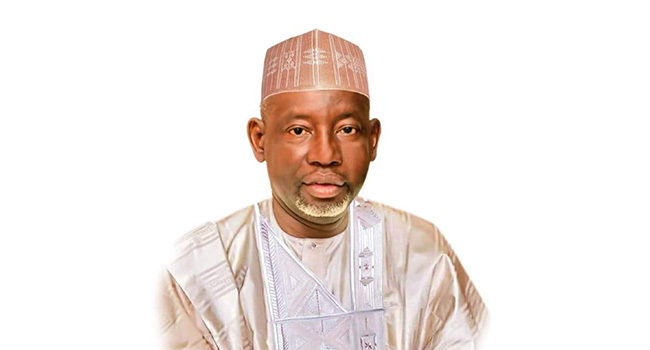Nigeria can attain wheat sufficiency — Jigawa gov
Governor Umar Namadi of Jigawa State has expressed optimism that Nigeria can attain self-sufficiency in wheat production in no distant future. He spoke on Thursday at the Presidential Villa in Abuja while fielding questions from State House reporters after a meeting with President Bola Ahmed Tinubu. The governor said he came to thank Mr President […]

umar namadi
Governor Umar Namadi of Jigawa State has expressed optimism that Nigeria can attain self-sufficiency in wheat production in no distant future.
He spoke on Thursday at the Presidential Villa in Abuja while fielding questions from State House reporters after a meeting with President Bola Ahmed Tinubu.
The governor said he came to thank Mr President for giving Jigawa State an opportunity to cultivate 40,000 hectares out of 120,000 hectares of land set aside for wheat farming in Nigeria.
Namadi, who said he briefed the president on the project and other developmental issues in Jigawa State and the country at large, stated that Nigeria was capable of exporting wheat with the current deliberate plan to attain self-sufficiency.
Missing Trust Radio tower: Civil Defence fails to refund N6.5m
Subscribers kick as telcos seek FG’s nod to increase tariffs
He said President Tinubu assured him that he was ready to give all the support required to his government to achieve the set goals, saying “Whatever we need, we should tell him and he’s ready to support us.”
Asked about the difference Jigawa State could make in wheat production for Nigeria, he said: “We are number one in wheat in Nigeria. So, the issue is we have already made a difference because we are number one. And then today, like I told you, out of 120,000 hectares for Nigeria, Jigawa State alone is given 40,000 hectares and that shows that we are making a difference.”
On whether Nigeria could attain wheat sufficiency in Nigeria, he said: “Certainly, we will. In Jigawa State, we have a FADAMA land of over 400,000 hectares. So, that is the only FADAMA land that we can cultivate in both the rainy and dry season.”
On the possibility of exporting the wheat, Namadi said: “Certainly, we are going to export wheat over time….We’re doing the first one, and then after this one, we’re going for rice, and the next one, we’re going to wheat, that’s how the cycle will continue to go. Definitely, we’re going to have food sufficiency and we’ll definitely have surplus to export.”
He revealed plans to produce two million tonnes of wheat for export and agricultural self-sufficiency through the National Wheat Development Programme and the state’s wheat programme.
